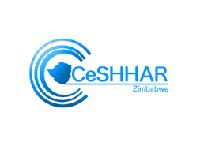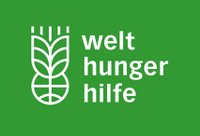Regional Technical Senior Specialist - Conflict
Job Description
Scope of Work
Introduction
The Famine Early Warning Systems Network (FEWS NET) is an integrated set of activities funded by the United States Government (USG) and is intended to provide timely, accurate, evidence-based, and transparent food insecurity early warning information and analysis. Created in 1985 in response to famines in East and West Africa, FEWS NET provides global coverage of acute food insecurity. FEWS NET’s work is implemented across several mechanisms by a team of partners that includes the National Aeronautics and Space Administration (NASA), the National Oceanic and Atmospheric Administration (NOAA), the United States Department of Agriculture (USDA), the United States Geological Survey (USGS), the University of California-Santa Barbara’s Climate Hazards Center (UCSB-CHC), University of Maryland’s Department of Geographical Sciences, American Institutes for Research (AIR), and Chemonics International (Chemonics). Chemonics implements FEWS NET’s Decision Support Team (DST), which is charged with providing integrated monitoring and analyses of current and forecast acute food insecurity in countries worldwide to support the United States Government’s (USG) policy and programmatic decisions. The DST operates through a Washington-based technical office, regional FEWS NET offices, and national staff presence in sub-Saharan Africa, the Middle East, Asia, Latin America, and eastern Europe.
FEWS NET’s objective is to produce timely, evidence-based decision support to enable the efficient allocation of humanitarian assistance on the basis of need.
Based on an in-depth understanding of local livelihoods, FEWS NET monitors information and data on factors that affect food security, such as conflict, weather conditions and agroclimatology, crops, pasture, markets and trade, and nutrition. The FEWS NET DST produces regular reports, including Food Security Outlooks and Outlook Updates, emergency alerts, market and price updates, and targeted analyses. FEWS NET makes reports available at www.fews.net and distributes them globally to governments, relief agencies, and other organizations engaged in humanitarian response and development programs.
The eighth phase of FEWS NET began in 2024. The work of the FEWS NET DST relies on close collaboration with international, regional, and national partners on food security-related data and information gathering and analysis. Major activities include joint monitoring and assessments, data sharing and exchanges, collaborative analysis and reporting, and support of local and regional food security networks.
Position Description
The FEWS NET DST is responsible for providing decision support to the USG in over 40 countries located in Africa, Latin America and the Caribbean (LAC), Asia, the Middle East, and Europe (MEE). The project operates out of a home office, based in Washington, D.C. and five regional offices located in LAC (Guatemala), West Africa (Niger), East Africa (Kenya), Southern Africa (Zimbabwe), and Middle East and Europe (Jordan). One regional technical senior specialist (RTSS) for conflict will be based in each of the regional offices.
The FEWS NET DST’s Conflict sector leads the project’s monitoring, analysis, and reporting on conflict, a key driver of acute food insecurity. The RTSS-Conflict will enhance the team’s capacity for early warning analysis related to conflict, ensuring the application of sound management principles and tools are employed in the operations of the Conflict sector.
The RTSS-Conflict works under the technical supervision of the Security and Conflict (S/C) Advisor, with administrative management provided by the Regional Technical Lead (RTL
Duties and Responsibilities
Responsibilities
The main responsibilities of the RTSS-Conflict include, but are not limited to:
Conflict Analysis
• Provide early warning analysis of conflict in FEWS NET’s presence countries within the region in alignment with guidance provided by the S/C Advisor.
• Support the technical development of the DST’s conflict analysis sector, including improving the team’s ability to understand, communicate, and interpret conflict events, and supporting the development of conflict scenarios, related assumptions, and projections of likely future conflict situations in FEWS NET geographies as relevant.
• Regularly review the consistency and accuracy of conflict projections and other conflict-related forecasting in the DST’s analysis and incorporate associated learning into sector methods, processes, and products.
• Review and provide guidance and inputs on conflict trajectories for countries within the region as a critical input to the Food Security Outlook and Food Security Outlook Update reports in collaboration with regional and country-level technical specialists to ensure alignment between conflict, livelihoods, agroclimatology and markets and trade forecasts.
• Monitor, assess, and analyze conflict and related social, political, and/or economic events that are likely to have an impact on the trajectory or intensity of conflict for integration into conflict forecasts where relevant. Under the direction of the S/C Advisor, helping establish and/or maintain systematic, timely, high-quality, and efficient data and information collection and management processes in relation to conflict. Supporting the collection, organization, and storage of primary and secondary conflict-related data and information for submission to the FEWS NET Hub and the USG.
• Develop a strong subject matter expertise on political and conflict dynamics throughout the geographic focus areas of the EWT.
• Support the S/C Advisor in meeting expectations on timely delivery of conflict analyses, which include, but are not limited to: responding to urgent questions within one day of request and providing briefings within one week of request.
• Under the direction of the S/C Advisor, regularly engage with the other mechanisms of FEWS NET and regional network partners to ensure the integration of available conflict-related analyses into the DST’s regular and ad hoc analyses and products and to support the project’s continued development of conflict analysis approaches, tools, products and guidance.
• Contribute to the FEWS NET DST’s decision support efforts to identify as early as possible potential or emerging conflict-related crises. The RTSS-Conflict will be expected to demonstrate the ability to respond quickly to sudden increases and decreases in analysis needs globally, under the direction of the S/C advisor, re-orienting work plans and initiating new lines of monitoring and reporting outside of traditional areas of coverage.
Regional representation
• Liaise with USG staff as requested and as directed by the S/C Advisor.
• Supervise a team consisting of select country-level conflict specialists.
• In collaboration with the Knowledge Management, Communication and Capacity Development (KMCCD) Senior Specialist and the Regional Network Development and Communications (RNDC) Senior Specialist, support capacity development efforts related to conflict and acute food insecurity for FEWS NET staff, through the development and/or delivery of select training materials on conflict analysis and reporting, including through one-on-one mentoring, small-group trainings, and information dissemination.
• Under the supervision of the S/C Advisor, and in collaboration with the RTL, supporting the design, execution, and monitoring of annual work plan activities that relate to the Conflict sector.
• Assist the RTL in carrying out a predetermined set of technical, management, and representational functions of the regional office, upon request and in coordination with the S/C Advisor.
• As needed, for limited periods of time, and with the agreement of the RTL, the S/C Advisor and the senior management team (SMT), the RTSS-Conflict may be expected to serve as acting-RTL.
Qualifications and Experience
• At least 5 years of relevant experience (with a master’s degree), or at least 6 years of relevant experience (with a bachelor’s degree). Relevant work experience includes humanitarian and/or development work, in particular food security, conflict analysis, conflict-related data collection, mapping, monitoring, analysis and/or reporting.
• Bachelor’s degree (or equivalent work experience) in a discipline relevant to the work of FEWS NET is required. An advanced university degree (master's degree or higher) in a discipline relevant to the work of the conflict sector is preferred, including but not limited to Peace/Conflict Studies, International Relations, Political Science, Security/Strategic Studies, International Development, Economics/Developmental Economics, Public Policy, or region/area-specific Studies.
• In-depth knowledge of conflict-affected geographies, preferably in a humanitarian context, with demonstrated experience conducting trend analysis and tracking conflict and/or security events is required.
• Familiarity with/working knowledge of qualitative and quantitative data collection, management, and analysis is required.
• Ability to leverage and synthesize information from in-country networks, media reports, social media, and paid information sources to assess the drivers of conflict and violence and triangulate trends is required.
• Demonstrated ability to communicate clearly and concisely, both orally and in writing, and lead presentations, training courses, and effective meetings is required.
• Strong knowledge of MS Office applications, including Outlook, Word, and Excel is required
• Ability to work both independently and as part of a team is required.
• Demonstrated ability to behave in a manner that invokes independent thinking, good judgment, and respect for others is required.
• Ability to solve complex technical, managerial, and/or operational problems and evaluate options based on relevant information, resources, well-rounded experience, and knowledge is highly preferred.
• Proficiency in written and spoken English is required; other local language skills relevant to the region are desirable.
Locations and Reporting
The strong preference is for candidates to be based in one of the regional offices, located in Guatemala City (Guatemala), Nairobi (Kenya), Niamey (Niger), Amman (Jordan) and Harare (Zimbabwe). Highly qualified candidates who have legal work authorization and are based in other select countries in which FEWS NET 8 operates (limited to the list below) may be considered.
• East Africa: Preference for Nairobi (Kenya). May consider candidates in Burundi, Ethiopia, and South Sudan.
• West Africa: Preference for Niamey (Niger). May consider candidates in Burkina Faso, Cameroon, Mali, and Nigeria.
• Southern Africa: Preference for Harare (Zimbabwe). May consider candidates in DRC, Madagascar, Malawi, and Mozambique.
• Latin America and the Caribbean (LAC): Preference for Guatemala City (Guatemala). May consider candidates in Haiti.
• Middle East and Europe (MEE): Preference for Amman (Jordan). May consider candidates in Yemen and Lebanon.
The RTSS-Conflict will work under the technical direction and supervision of the Washington D.C.-based Security and Conflict (S/C) Advisor, while administrative supervision will be provided by the Regional Technical Lead (RTL), in coordination with the S/C Advisor. The RTSS-Conflict may supervise select country-based technicians. The RTSS-Conflict will be required to travel domestically and internationally, personal considerations permitting.
How to Apply
https://chemonicsinternational-accna.formstack.com/forms/regional_technical_sr_specialist_markets_trade_copy
Similar Listings

Procurement and Administration Manager x1, Harare
CeSHHAR Zimbabwe — Harare

Data Systems Engineer x1, Harare
CeSHHAR Zimbabwe — Harare

Project Coordinator -Sustainable Agribusiness Hubs and Wholesome Initiatives for Rural Advancement (SAHWIRA) Project
Welthungerhilfe — Beitbridge

Program Manager - PACE
CeSHHAR Zimbabwe — Harare

Partnership and Advocacy Advisor : Mvuramanzi Trust (MMT)
Local NGO — Harare

Location: Harare
Company: Chemonics FEWS NET
Expiry Date: 2025-09-08 00:00:00
